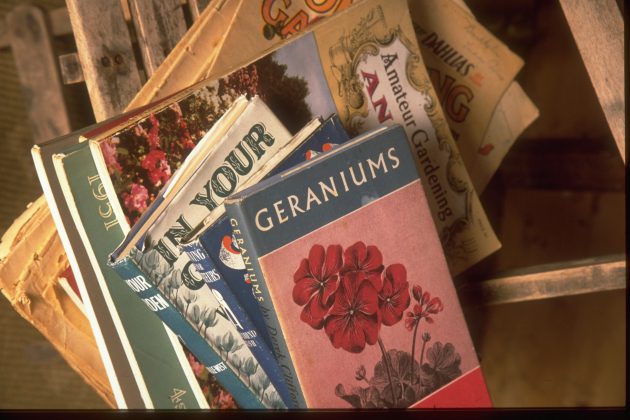Life can be difficult for novice gardeners who lack a green-fingered parent or mentor to guide them. But don’t despair – there is a wealth of helpful information out there, says Ursula Buchan
I’ve been thinking about novice gardeners and how they learn. One morning in the autumn, I helped my daughter to dig out ‘bootlaces’ – the subterranean rhizomorphs of honey fungus (Armillaria mellea). Our work was hard but the sun was shining and the banter excellent, so I didn’t mind. Some years earlier, a previous owner of this garden must have cut down a tree without (pause for a fit of the vapours) digging out the roots. These had been penetrated and then killed by rhizomorphs. Over time the bootlaces have spread outwards, only announcing themselves each autumn when honey-coloured fungi push up through the grass.
We could have found a more enjoyable job, but I persuaded my daughter that we had to tackle this. Potentially vulnerable trees, shrubs and roses growing on the lawn’s periphery required protection! These days, there is no fungicide registered for amateur gardeners to use in controlling Armillaria. So we set to, first removing and burning the brown fruiting bodies to prevent infection by spores and then tracing and carefully extracting the bootlaces from the soil. I should be astonished if our labours have solved the problem entirely, but they will have arrested the expansionist instincts of Armillaria for a time. Next autumn we shall know if we need to dig once more.
Novice gardeners need mentors
Honey fungus is a problem in many long-established gardens. However, most novice gardeners don’t have any idea until a tree sickens and dies unexpectedly. Without my breezy confidence, borne of professional horticultural training and many years’ experience, I don’t suppose my daughter would have had the courage to tackle the problem. Instead she might have vainly searched the internet for some remedy that does not exist. And she is no gardening slouch, since she faithfully followed me around the garden as a child and has worked in her own garden for several years.

Extra pairs of hands in the garden can help with all manner of jobs
The feeling of helplessness for novice gardeners can be far worse than for the newbie cook. Every child sees someone cooking and picks up bits of knowledge, often without realising it. But that is not necessarily the case with gardening, especially for those brought up in cities. I often find new, inexperienced gardeners believe that they will kill their shrubs if they prune them at the ‘wrong’ time or their plants won’t grow if propagated in the ‘wrong’ way. They are unnerved by all that they feel they do not know.
Sources of help for novice gardeners
But no one should despair. Truly, I mean it. Most hardy garden plants are remarkably tolerant of suboptimal care. If it were not so, we shouldn’t be known the world over as a nation of gardeners. Our temperate climate is very forgiving. What is more, there is much helpful information available these days. For people who like reference books, anything practical that is sponsored by the Royal Horticultural Society, such as The Complete Gardener’s Manual, will do. Those who prefer to read about gardening in bed could try the paperback version of The Apprehensive Gardener by Griselda Kerr. It contains succinct and lively advice. Moreover, Kerr was a totally novice gardener when she first took on a large garden more than 20 years ago.
There are also a number of YouTube videos made by expert gardeners. I favour Bunny Guinness’s channel and also Alexandra Campbell’s The Middle-Sized Garden. Both of these will suit country gardeners. Neither expert treats the viewer as an idiot but nor do they assume he or she has a degree in horticulture. For vegetable gardening, I recommend Charles Dowding. However, those still at the intimidated stage should keep away from Instagram. It’s the perfect platform for horticultural show-offs and can only make feelings of inadequacy worse. May I suggest to all Field readers who have learned experience and confidence in gardening over the years, to pass on what they know to their youngsters.
Got garden pests? Read our guide to the best natural pesticides.





